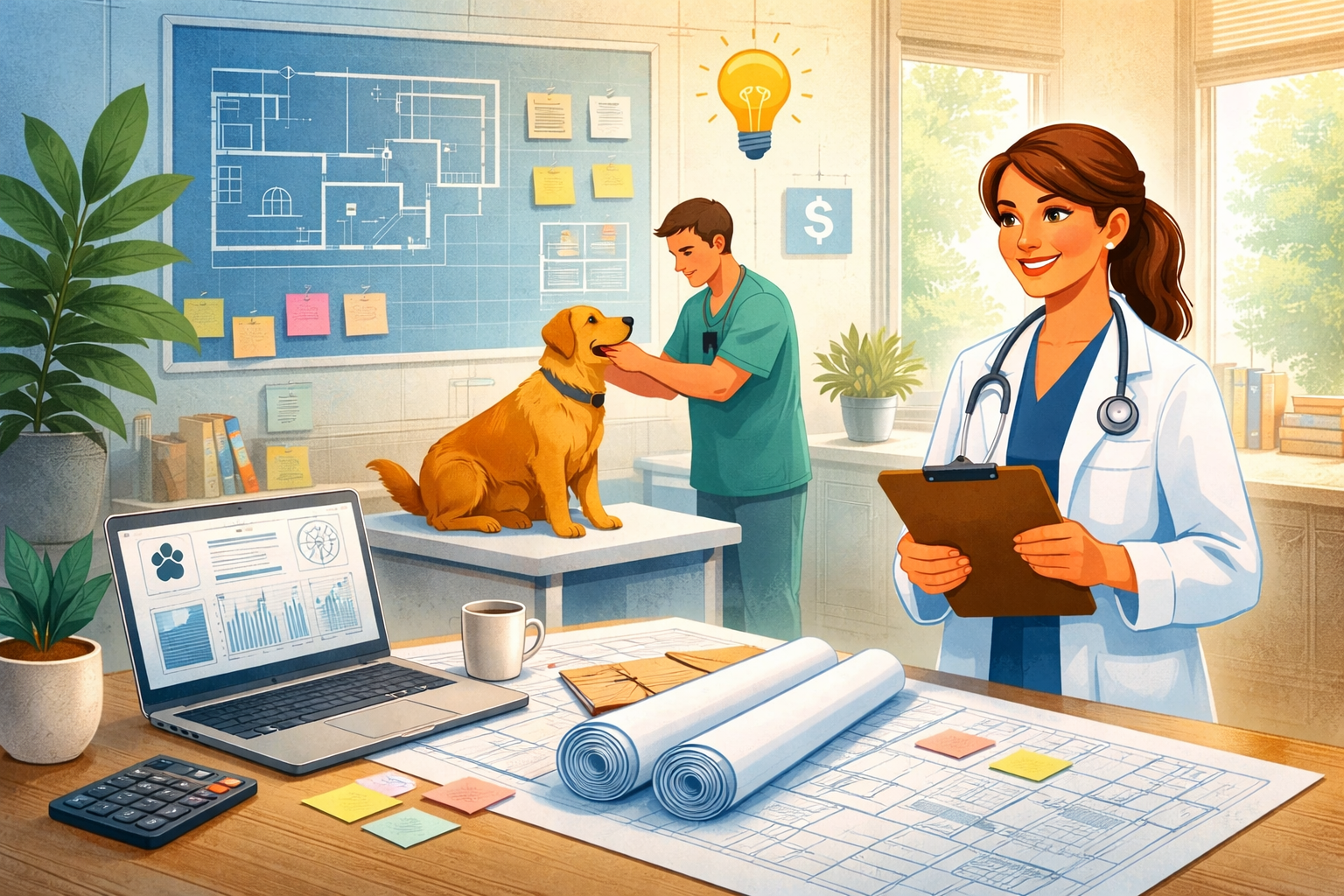
Navigating Licensing and Permits for Your Veterinary Clinic
Opening a veterinary clinic requires more than just securing funding and setting up your equipment; you’ll also need to navigate the legal side of things, including obtaining the necessary licenses and permits to operate your clinic. These regulations are in place to ensure that your clinic meets health, safety, and professional standards, and they vary depending on your location. In this post, we’ll guide you through the process of understanding and acquiring the licenses and permits required to run your veterinary clinic legally and successfully.
1. Understand the Required Veterinary Licenses
The most important license you’ll need is your veterinary license, which allows you to legally practice as a veterinarian. This license ensures that you have met the education and examination requirements necessary to treat animals. Here’s what you need to know:
- National Licensing Exam: In many countries, including the United States, you must pass the North American Veterinary Licensing Examination (NAVLE) or an equivalent exam in your country to qualify for licensure.
- State or Local Licensing: Most states or local jurisdictions require veterinarians to obtain a state license in addition to the national exam. These licenses can vary in requirements, so check with your state’s veterinary board for specifics.
- Continuing Education: Many regions require veterinarians to complete continuing education courses throughout their careers to maintain their licenses.
Make sure you stay up to date with the continuing education requirements to avoid any issues with license renewal.
2. Business License
Your veterinary clinic is a business, and as such, you’ll need a business license to legally operate. The requirements for obtaining a business license can vary by city or county, but the general process includes:
- Registering your business: You may need to register your clinic’s name with your local or state government.
- Choosing your business structure: Whether you’re operating as a sole proprietorship, partnership, or corporation, your business structure will affect your tax obligations and personal liability.
- Applying for a license: Submit your application for a business license, which may involve paying a fee and providing necessary documents such as proof of your clinic’s address.
Contact your local business licensing office to find out what specific forms and fees are required in your area.
3. Health and Safety Permits
Running a veterinary clinic means dealing with animals and medical procedures, so it’s essential to meet health and safety standards. Health permits are often required to ensure that your clinic adheres to local health and sanitation codes. These permits may cover:
- Building inspections: Your clinic’s physical location will likely need to pass a health inspection to ensure that it meets zoning and sanitation standards.
- Waste disposal: Veterinary clinics produce medical waste that must be disposed of in compliance with local regulations. This can include biohazardous materials like needles, syringes, and animal remains.
- Sterilization and safety: You will also need to comply with safety standards related to sterilization and infection control practices in your operating rooms and treatment areas.
Make sure you review your local health department’s requirements to avoid penalties or delays in opening your clinic.
4. Controlled Substances License
If your clinic will be prescribing or administering controlled substances, such as certain painkillers or anesthetics, you will need a controlled substances license. This license is typically issued by the Drug Enforcement Administration (DEA) in the U.S. and other similar agencies in other countries.
To obtain this license, you will need to provide information about your clinic’s operations, demonstrate that you have appropriate safeguards in place for handling and storing controlled substances, and pass a background check.
Be sure to follow strict record-keeping and reporting requirements to stay compliant with federal and state regulations.
5. Radiology and X-ray Licenses
If your clinic will be offering diagnostic imaging services, such as X-rays or ultrasound, you may need additional licensing or certifications. Depending on your location, you may need to obtain:
- Radiology license: This ensures that the personnel performing radiological procedures are properly trained and certified.
- X-ray equipment certification: Your equipment must meet safety standards and be inspected regularly by a qualified technician.
Check with your local or state health department for specific radiology regulations and licensing requirements.
6. Animal Shelter and Boarding Facility Permits
If your veterinary clinic will also provide boarding or shelter services for animals, such as overnight stays or long-term care, you may need additional permits. These permits typically cover:
- Zoning laws: Check with your local zoning office to ensure that your clinic’s location is zoned for animal boarding or shelter.
- Animal welfare regulations: Many cities and states have specific guidelines for the care and treatment of animals in shelters and boarding facilities, including requirements for space, ventilation, and animal supervision.
- Inspection requirements: Your facility may be subject to regular inspections to ensure the health and safety of the animals in your care.
Check with your local regulatory bodies to ensure you’re in compliance with these additional requirements.
7. Insurance Requirements
In addition to licenses and permits, your veterinary clinic will need various types of insurance to protect your business and clients. Common types of insurance include:
- Professional liability insurance: Also known as malpractice insurance, this covers legal costs and damages if your clinic is accused of negligence or malpractice.
- Property insurance: Protects your clinic’s physical assets, including equipment and office space, in the event of damage or loss.
- Workers’ compensation: Provides coverage for your employees in the case of work-related injuries or illnesses.
Consult with an insurance broker to determine the best coverage for your clinic’s needs.
8. Additional Permits for Specialty Services
If your clinic plans to offer specialized services, such as surgical procedures, dentistry, or alternative treatments like acupuncture, you may need to obtain additional certifications or permits. For example:
- Surgical facility permits: If your clinic offers surgery, you may need specific permits to operate a surgical facility.
- Acupuncture certification: If you plan to offer acupuncture for animals, many regions require veterinarians to complete specific training and obtain certification in veterinary acupuncture.
Make sure you research any extra certifications required for the services you plan to offer.
Conclusion
Navigating the licensing and permit process can feel overwhelming, but it’s an essential part of opening your veterinary clinic. By securing the necessary licenses and adhering to local regulations, you’ll be able to operate legally, avoid penalties, and build a solid foundation for your practice. Be sure to research the specific requirements for your area, and don’t hesitate to consult with local authorities or legal experts if you have any questions.
With the proper licenses and permits in place, you can focus on providing excellent care to your patients and building a successful veterinary practice.



